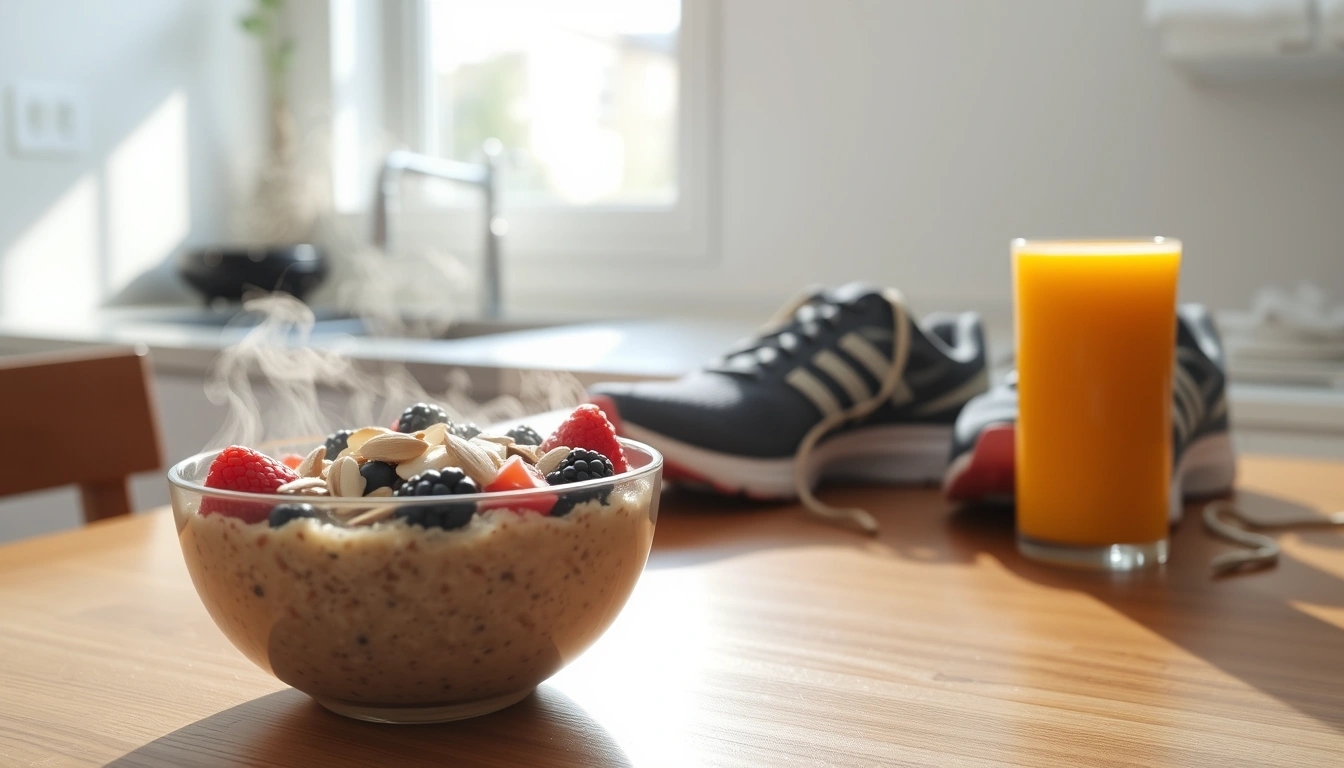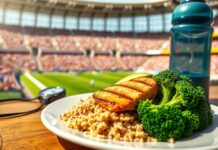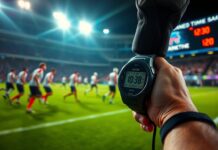Alright, so you’ve decided to lace up and hit the pavement early in the morning — kudos! But before you sprint off into the sunrise, there’s one big question: what the heck should you eat to actually fuel your run? It’s not just about shoveling anything down; it’s about timing, food choices, and avoiding that dreaded mid-run bonk or stomach revolt.
Let’s face it, morning runs are a bit of a juggling act. You’re probably half-asleep, maybe a little cranky, and definitely not in the mood for a three-course breakfast. But fueling up properly can make the difference between feeling like a gazelle or a turtle out there.
- Why Morning Nutrition Matters: Your body’s been fasting all night — no snacks, no caffeine (unless you sneak one), nada. That means your glycogen stores (your go-to energy source) are running low. Eating something smart before you run gives you that much-needed energy boost, helps maintain stamina, and keeps your brain from turning into mush halfway through your route.
- Timing is Everything: Eat too early, and you risk feeling hungry mid-run. Eat too late, and you might end up with a side stitch or worse — feeling like your stomach’s doing cartwheels. Ideally, you want to eat about 30 to 60 minutes before you hit the road. If you’re super tight on time, a small snack 15 minutes prior is better than nothing.
| Food Type | Why It’s Good | When to Eat |
|---|---|---|
| Carbohydrates | Quick energy, replenishes glycogen | 30-60 minutes before |
| Protein | Supports muscles, aids recovery | 30-60 minutes before (in small amounts) |
| Fats | Slow-burning energy, but can slow digestion | Limit before runs, better post-run |
| Hydration | Keeps you cool, prevents cramps | Drink water 15-30 minutes before |
Carbs are your best friend here. Think simple, easy-to-digest stuff like a banana, toast with a little honey, or a small bowl of oatmeal. Protein? Yeah, it’s important, but keep it light — a spoonful of peanut butter or a small yogurt works wonders without weighing you down. Fats? Eh, they’re tricky. They take longer to digest, so a greasy breakfast right before your run is a no-go unless you want to feel like you swallowed a brick.
Hydration often gets overlooked. You might think, “I’ll just drink after,” but starting off dehydrated? Rookie mistake. Sip some water or an electrolyte drink before you start moving — it helps your muscles work better and keeps cramps at bay.
Now, what to avoid? Fried foods, heavy dairy, and anything super high in fiber. You don’t want to be doing the potty dance mid-run because your stomach’s staging a protest.
- Quick Snack Ideas: Half a banana, a small granola bar, a slice of toast with jam, or a handful of raisins. Easy to grab, easy to digest.
- Sample Meal Plan for Runners:
- Beginners: Banana + small glass of water, 30 minutes before.
- Seasoned runners: Oatmeal with honey and a dash of peanut butter, 45 minutes before.
- Sensitive stomachs: Plain toast and a small electrolyte drink, 30 minutes before.
What if you just can’t stomach food first thing? Try sipping on something light like diluted juice or a sports drink. Some runners swear by a small coffee (just don’t go overboard), which can actually help wake you up and boost performance.
At the end of the day, listen to your body. If you feel sluggish, experiment with what and when you eat. If you’re feeling great, keep doing what works. Just remember, fueling your morning run isn’t rocket science — it’s about balance, timing, and a little trial and error.
In short: Eat some carbs, keep protein light, avoid heavy fats, hydrate well, skip the stomach troublemakers, and adjust based on how you feel. Now, go crush those morning miles like the champ you are!
Why morning nutrition matters
Look, we all know mornings can be rough. Dragging yourself out of bed for a run before the sun even thinks about rising? That takes guts. But here’s the kicker: what you shove into your stomach before lacing up your sneakers can make or break your entire run. Seriously, it’s not just about waking up and hitting the pavement; it’s about fueling your body right so you don’t feel like a zombie halfway through. Energy levels, stamina, and even your overall mood during the run depend heavily on that pre-dawn bite.
Think of your body like a car. Would you start a long trip on empty? Nope. Same goes for running. Your muscles need fuel, and the brain needs glucose to keep you alert and motivated. Without the right nutrition, you’re basically running on fumes. You might feel okay for the first few minutes, but soon enough, fatigue creeps in, your legs feel like lead, and that glorious morning run turns into a slog. Not fun.
- Energy boost: Eating before your run tops off your glycogen stores, which are your muscles’ go-to energy source.
- Stamina support: Proper fuel means you can keep going longer without crashing.
- Better focus: Your brain loves carbs and a bit of protein to help you stay sharp.
Now, timing is a sneaky little devil here. Eat too early, and your body might burn through that energy before you even start running. Eat too late, and you’re risking cramps or that annoying bloated feeling. So, it’s a balancing act. A good rule of thumb is to have something light and carb-rich about 30 to 60 minutes before your run. But hey, everyone’s different — some runners swear by a quick banana 20 minutes before, others need a bit more time to digest.
| Factor | Without Proper Nutrition | With Proper Nutrition |
|---|---|---|
| Energy Levels | Low, quick fatigue | Steady, sustained energy |
| Stamina | Decreased endurance | Improved endurance |
| Focus & Mood | Foggy, distracted | Alert, motivated |
| Digestive Comfort | Potential cramps or bloating | Comfortable, no issues |
And let’s not forget, your body is a bit of a diva. It’ll throw tantrums if you feed it junk or ignore its signals. You might think, “Eh, I’ll just run on an empty stomach,” but that’s a gamble. Sure, some people do fasted runs and swear by it, but honestly, it’s not for everyone. If you’re new to running or aiming for a personal best, eating something beforehand is usually the smarter play.
Quick tip: Don’t just focus on what you eat, but also on how you eat. Too much fiber or fat right before running? Expect a not-so-fun bathroom break mid-run. Keep it simple, keep it light, and listen to your body. It’s the only one you’ve got.
- Practical insight: Try experimenting with small snacks like a slice of toast with honey, a handful of raisins, or a small smoothie. See what sits well with you.
- Pro tip: Hydrate well but avoid chugging gallons of water right before stepping out. Sip smartly.
In the end, morning nutrition isn’t just a fancy topic for dietitians. It’s the secret sauce behind a run that feels good, not like punishment. So next time you’re staring down that early alarm, remember: a little thoughtful munching before you hit the road could be your golden ticket to crushing those miles with energy and a smile.
Timing your pre-run meal
Alright, let’s get real about when to eat before you lace up and hit the pavement. This isn’t some rigid science experiment, but more like a delicate dance between your stomach, your energy levels, and your running goals. Eat too soon, and you might be doubling over with cramps or that all-too-familiar sluggishness. Wait too long, and hunger pangs will turn your run into a desperate hunt for the nearest snack stand. Neither is ideal, right? So, what’s the sweet spot? Timing is everything.
Most runners agree that eating about 1.5 to 3 hours before your run is a good window. This gives your body enough time to digest and convert food into usable energy. But here’s the kicker — everyone’s a bit different. Some folks can munch on a banana just 30 minutes before and feel golden, while others need a full breakfast two hours ahead to avoid that mid-run slump.
- Why not eat right before? Well, your body’s busy sending blood to your digestive system after a meal, which can leave your legs feeling like lead or cause that dreaded side stitch.
- Too early? You risk running on empty, and that’s a surefire way to hit the wall.
Ideal Pre-Run Meal Timing:--------------------------| Time Before Run | What to Expect ||-----------------|--------------------------------|| 3 hours | Full meal digestion, steady energy || 1.5 - 2 hours | Light meal or substantial snack || 30 - 60 minutes | Small, easily digestible snack |
Let’s not forget the quality of the food you’re eating before the run. Timing is just one piece of the puzzle. A carb-heavy bite with a little protein about two hours out generally does the trick. Think oatmeal with a spoonful of peanut butter or a slice of toast with honey. But if you’re grabbing a greasy breakfast sandwich 15 minutes before, expect to pay the price mid-run with sluggishness or worse — nausea.
Here’s a quick tip: experiment during training runs. Don’t try new foods or timing strategies on race day. Your gut’s a fickle beast, and you want it to cooperate, not revolt. Track how different timings and meals affect your energy and digestion. Keep a simple journal or use an app to note down what you ate, when, and how you felt. Over time, you’ll find your personal sweet spot.
| Pre-Run Timing | Recommended Foods | Why? |
|---|---|---|
| 2-3 hours before | Oatmeal, banana, toast with peanut butter | Slow-digesting carbs + protein for sustained energy |
| 1 hour before | Fruit smoothie, yogurt, energy bar | Quick carbs, easy digestion |
| 30 minutes before | Small banana, handful of raisins | Fast energy without stomach upset |
Now, if you’re someone who wakes up with zero appetite (and trust me, you’re not alone), don’t freak out. Sometimes sipping on a little water or an electrolyte drink 15-20 minutes before can help kickstart your system. Or try a tiny snack like a few bites of a granola bar. It’s better than running on empty and regretting it halfway through.
So yeah, timing your pre-run meal is a bit of a balancing act — part science, part art, and a dash of trial and error. But nail it, and you’ll notice the difference: no more sluggish jogs or mid-run hunger pangs, just smooth, energized miles. And isn’t that what we all want?
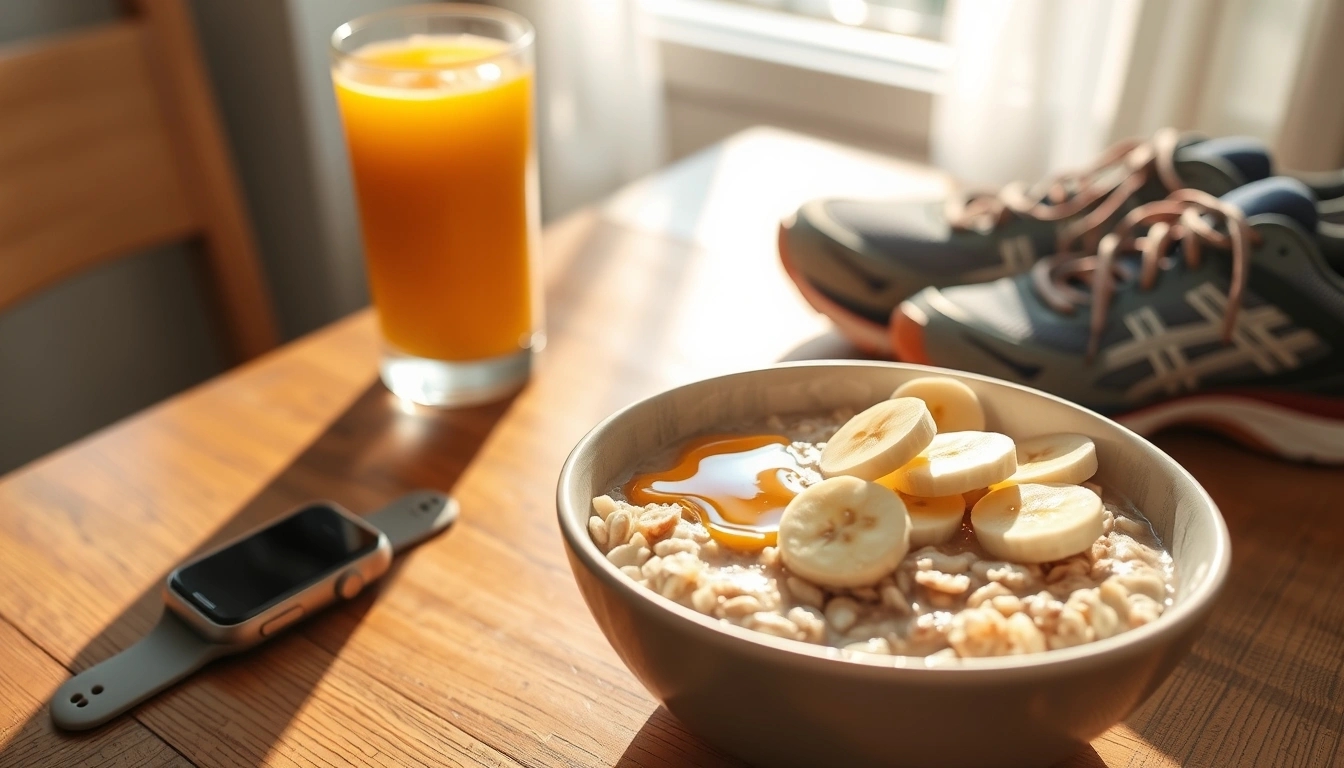
Carbs: Your morning run’s best friend
Alright, let’s get real about carbohydrates and why they’re basically the MVPs of your morning run. When you wake up and lace up those sneakers, your body is pretty much running on empty. Overnight, your glycogen stores — that’s the fancy term for stored carbs in your muscles and liver — have been drained to keep you alive through the night. So, if you think you can just jump out of bed and crush a run without fueling up on carbs, well, good luck with that sluggish, heavy-legged shuffle.
Carbohydrates are the quickest way to top off your energy tanks. Unlike fats or proteins, carbs break down rapidly into glucose, which your muscles gobble up for fuel. Think of carbs as the “fast cash” of energy — ready to spend immediately. This is especially crucial during early runs when your body hasn’t had a chance to metabolize fats efficiently yet. Without enough carbs, you might find yourself hitting that dreaded wall pretty early, gasping for breath and wondering why you even bothered.
- Simple carbs like a banana, a slice of toast with honey, or a small bowl of oatmeal are excellent pre-run choices. They digest quickly and provide that instant kick.
- Complex carbs, such as whole grain bread or sweet potatoes, take a bit longer to break down but offer sustained energy — great if you’re planning a longer run.
Now, timing carbs before your run is kind of an art. Eat too early, and your blood sugar might dip by the time you hit the trail. Eat too late, and you risk stomach cramps or that annoying sloshy feeling. Ideally, aim for a carb-rich snack about 30 to 60 minutes before you start. But hey, everyone’s gut is different — some runners swear by a quick 15-minute pre-run nibble, while others need a full hour to avoid tummy troubles.
| Carb Type | Examples | Best Timing | Energy Release |
|---|---|---|---|
| Simple Carbs | Bananas, white bread, honey | 15-30 minutes before | Quick burst |
| Complex Carbs | Oatmeal, whole grain bread, sweet potatoes | 45-60 minutes before | Sustained energy |
You might be wondering, “But what about fats or proteins?” Sure, they have their place, but carbs are the star when it comes to quick energy. Fats take longer to digest and proteins don’t provide the immediate fuel your muscles crave during those first few miles. So, if you want to avoid feeling like a zombie dragging your feet, load up on carbs.
One little trick: if you’re not a breakfast person and can’t stomach solid food early on, try liquid carbs like a sports drink or a smoothie. They hit your system faster and are easier on the stomach. Just don’t go overboard — too many carbs too quickly can backfire with bloating or cramps.
In a nutshell: Carbs energy. No carbs “Why am I so tired already?” Your morning run depends on them more than you think. So next time you’re tempted to skip that pre-run snack, remember: carbs are your best friend out there pounding the pavement.
Protein’s role before hitting the pavement
Alright, so you’re gearing up for that morning run, lacing up your shoes, and maybe you’ve been told to “just eat carbs and forget the rest.” But hold your horses! Let’s chat about why tossing a bit of protein into your pre-run mix isn’t just some fancy nutritionist talk — it actually matters, even before your feet hit the pavement.
First off, protein isn’t just the muscle-building superstar post-workout. Nope, it plays a sneaky but important role even before you start running. Think of it as the backstage crew prepping your muscles for the show. When you consume some protein before running, it provides your body with amino acids, which are like little repair workers. They help reduce muscle breakdown during your run and prime your muscles for quicker recovery afterward. Yeah, it’s like sending your muscles a care package before the battle.
Now, don’t go overboard and eat a steak the size of your head right before jogging. That’s a recipe for disaster (hello, stomach cramps!). The key is a modest amount of easily digestible protein — something like a spoonful of Greek yogurt, a small handful of nuts, or a bit of nut butter on toast. These options deliver enough protein without weighing you down.
| Protein Source | Approximate Protein Content | Why It Works Pre-Run |
|---|---|---|
| Greek Yogurt (½ cup) | 10-12 grams | Rich in casein, digests slowly, provides steady amino acid release |
| Peanut Butter (1 tbsp) | 4 grams | Contains healthy fats and protein, good energy combo |
| Boiled Egg (1 large) | 6 grams | Complete protein, easy to digest if eaten in moderation |
| Protein Shake (small serving) | 15-20 grams | Quick absorption, customizable, handy for busy mornings |
You might wonder, “But isn’t protein slow to digest? Won’t it slow me down?” Good question! While it’s true that protein digests slower than carbs, having a little bit about 30-60 minutes before you run won’t bog you down if chosen wisely. It actually helps stabilize blood sugar levels so you don’t crash mid-run. Plus, it can curb that gnawing hunger feeling that hits some runners right after the first mile.
- Pro tip: Pair your protein with some simple carbs — like a banana or a slice of toast — to get that energy boost while still supporting muscle maintenance.
- Too much protein? You might feel sluggish or get an upset stomach. Balance is key.
- Vegetarian or vegan runner? No worries — options like almond butter, soy yogurt, or a small scoop of pea protein powder work wonders too.
Here’s a quick rundown of what protein does for you pre-run:
- Supplies amino acids to protect muscles from breakdown- Helps with muscle repair even during the run- Keeps hunger at bay longer than carbs alone- Supports steady energy release when combined with carbs
In the end, the takeaway is simple: don’t dismiss protein just because you’re about to run. It’s a subtle game-changer that can help your muscles stay strong and bounce back faster. So next time you’re debating between just a bagel or a bagel with a smear of peanut butter, go for the latter. Your muscles will thank you — even if your brain might grumble a bit about waking up early.
Happy running, fueled smart!
Fats: Friend or foe before a run?
Okay, let’s get real about fats before you lace up for that morning run. Fats often get a bad rap—like the villain in your pre-run meal story—but it’s not all black and white. Sure, fats are a dense energy source, packing about 9 calories per gram compared to carbs and proteins which clock in at 4. But does that make them the ultimate fuel or a digestive nightmare? Let’s break it down.
- Pros of fats before running: Fats provide long-lasting energy. Unlike carbs that burn fast and furious, fats are like the slow burner, helping keep you going on those longer runs. They’re especially handy if you’re planning to run for more than an hour. Plus, fats help absorb fat-soluble vitamins (A, D, E, and K), which are crucial for overall health.
- Cons of fats before running: Here’s the kicker—fats take longer to digest. That means if you eat a high-fat meal right before hitting the pavement, your stomach might throw a tantrum. You could end up feeling sluggish, bloated, or worse, dealing with cramps. Not exactly the recipe for a killer run.
| Aspect | Benefit | Potential Drawback |
|---|---|---|
| Energy | Provides sustained energy for long runs | Slower to convert to usable energy compared to carbs |
| Digestion | Supports absorption of essential vitamins | May cause gastrointestinal discomfort if eaten too close to run |
| Satiety | Keeps you feeling full longer | Can lead to feeling heavy or sluggish |
So, what’s the bottom line? If you’re planning a quick 30-minute jog, loading up on fats right before probably isn’t the smartest move. Your body won’t have enough time to break down those fats, and you might end up feeling like you’re running with a brick in your stomach. On the flip side, for longer runs or races, a moderate amount of healthy fats consumed well in advance—think 2-3 hours before—can be beneficial.
- Healthy fat options: Nuts, avocado, olive oil, and nut butters are your friends here. Avoid greasy, fried foods or heavy cream-based dishes pre-run.
- Timing is king: Eating fats too close to running? Recipe for disaster. Give your body time to digest—this is non-negotiable.
Remember, everyone’s digestive system is a little quirky. What works for your buddy might send you sprinting to the nearest restroom. Experimentation is key. Maybe try a small spoonful of peanut butter an hour before your run and note how you feel. Or skip fats altogether and focus on carbs and a little protein for that quick energy burst.
In the end, fats aren’t the enemy—they’re just a bit high-maintenance. Treat them right, and they’ll fuel your run like a champ. Ignore the rules, and you might just regret it halfway through mile two.
Quick tips for fats pre-run:
- Keep fats moderate and from healthy sources.
- Eat fats at least 2 hours before running.
- Pair fats with carbs for balanced energy release.
- Listen to your gut—literally. Adjust based on how you feel.
So next time you’re planning that pre-run meal, don’t demonize fats. But don’t invite them to the party last minute either. They’re more like the slow guests who show up early and stay late—best when handled with care.
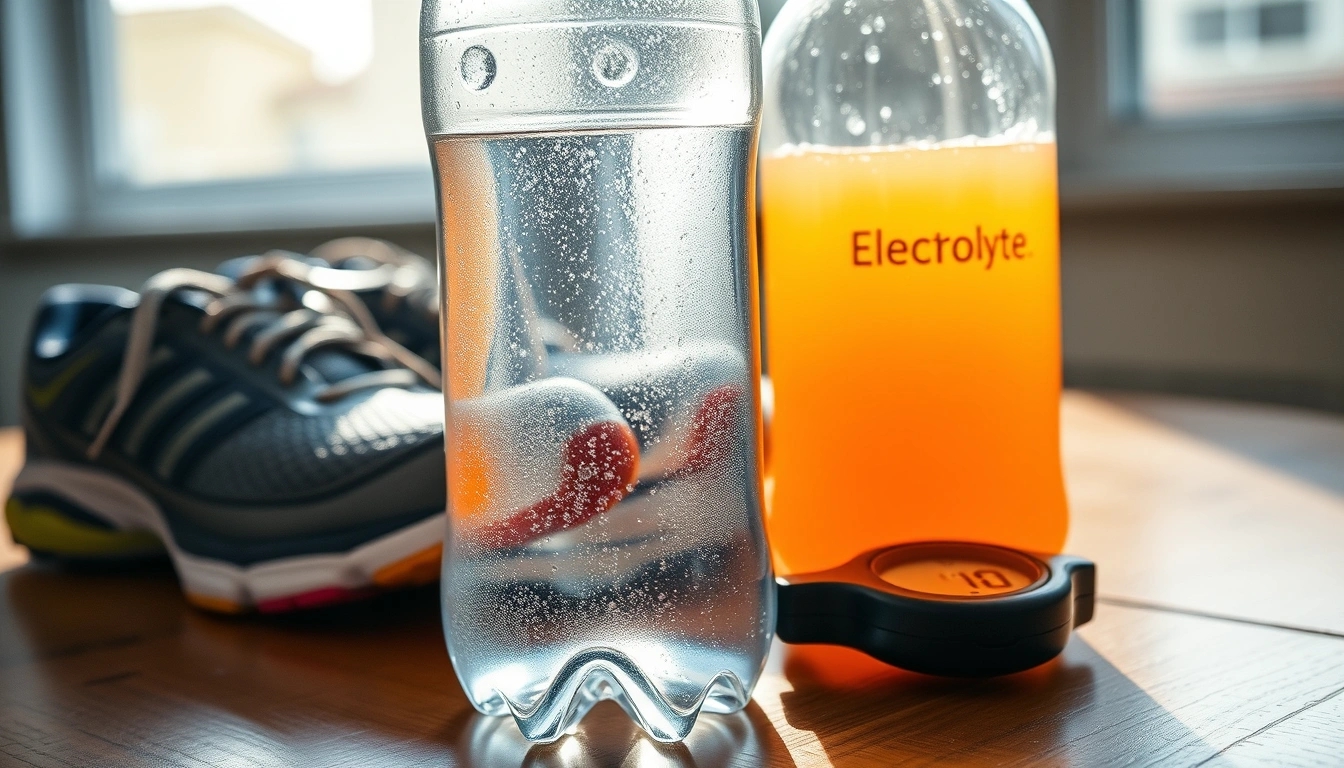
Hydration: The often overlooked factor
Let’s get real for a second: how many times have you charged out the door for a run without a single sip of water, thinking, “Eh, I’ll just sweat it out”? Yeah, been there, done that, and spoiler alert—it rarely ends well. Hydration before running isn’t just some boring health lecture stuff; it actually makes a huge difference in how you perform and, frankly, how comfortable you feel while clocking those miles. You might think, “Water? Electrolytes? Meh, I’m fine,” but trust me, your body’s a sneaky little machine that needs that liquid fuel before you even lace up your shoes.
Why water matters before you hit the pavement
Before you start pounding the pavement, your muscles and organs need to be well-lubricated. Dehydration—even mild—can cause cramps, sluggishness, and a total energy drain. When you’re dehydrated, your blood volume drops, which means your heart has to work harder to pump oxygen and nutrients to your muscles. You don’t want that extra cardio workout before your actual run, right? Plus, your body temperature regulation gets thrown off, making you feel hotter and more exhausted quicker than usual.
| Hydration Effect | Impact on Running |
|---|---|
| Proper hydration | Improved endurance, better muscle function, cooler body temperature |
| Dehydration | Fatigue, cramps, decreased coordination, heat exhaustion risk |
Electrolyte drinks: Why they’re more than just fancy water
Now, plain water is great, but sometimes it’s just not enough—especially if you’re a heavy sweater or running in hot weather. This is where electrolyte drinks come into play. Electrolytes like sodium, potassium, and magnesium help maintain fluid balance and muscle function. Without them, you might feel like your legs are made of jelly halfway through your run. But heads up: not all electrolyte drinks are created equal. Some have a ton of sugar, which might give you a quick energy spike but then leave you crashing hard. So, look for ones with a balanced formula or make your own mix with a pinch of salt and a splash of citrus juice.
- Tip: Sip about 16-20 ounces of water or an electrolyte drink 30-60 minutes before your run.
- Pro tip: If you’re running long distances, consider small sips every 15-20 minutes during your run.
- Warning: Overhydrating can be a thing too—don’t chug a gallon right before you start!
Bottom line? Hydrating before you run isn’t just about avoiding a dry mouth or a headache. It’s about setting your body up for success, keeping cramps at bay, and feeling like a rockstar instead of a hot mess. So next time you’re prepping for a run, grab that water bottle or electrolyte drink and give your body the love it deserves. Your future self, crossing that finish line with a smile, will thank you.
Hydration checklist before running:- Drink 16-20 oz water/electrolyte drink 30-60 min prior- Avoid sugary sports drinks with excessive carbs before short runs- Adjust intake based on weather and sweat rate- Listen to your body: thirst is a late signal!
Foods to avoid before a morning run
Alright, let’s get real about what you should not be munching on before you lace up your running shoes in the morning. We all want to feel energized and light on our feet, but some foods can totally sabotage that vibe by causing cramps, bloating, or that sluggish, “ugh, why am I even moving?” feeling. So, here’s the lowdown on the usual suspects that might turn your morning run into a nightmare.
- Greasy or fried foods: Yeah, those tempting donuts or bacon strips might seem like a quick energy fix, but they’re a big no-no pre-run. They sit heavy in your stomach, slow digestion, and can leave you feeling like you swallowed a rock. Expect cramps and sluggishness if you try to run after indulging.
- High-fiber foods: Fiber is great for digestion overall, but before a run? Not so much. Foods like beans, broccoli, or bran cereals can cause gas and bloating, making every step uncomfortable. Your gut will be doing somersaults while you’re trying to hit your stride.
- Dairy products: Milk, cheese, or yogurt might be healthy, but if you’re lactose intolerant or sensitive, they can cause cramps and diarrhea mid-run. Even if you tolerate dairy well, it’s best to keep portions small before a morning jog.
Now, let’s throw in a little table for clarity because who doesn’t love a good chart?
| Food Type | Why to Avoid | Common Symptoms During Run |
|---|---|---|
| Greasy/Fried Foods | Slow digestion, heavy stomach | Cramps, sluggishness, nausea |
| High-Fiber Foods | Gas production, bloating | Stomach discomfort, bloating |
| Dairy | Lactose intolerance, digestion issues | Cramps, diarrhea, gas |
| Carbonated Drinks | Gas buildup | Bloating, burping |
| Spicy Foods | Irritates digestive tract | Heartburn, cramps |
Oh, and don’t forget about carbonated drinks — those bubbles might make your morning more fun, but they’ll also fill your stomach with gas. Burping mid-run? Not exactly the highlight of your workout. Spicy foods? Yeah, they’re great for flavor but terrible for your gut when you’re about to pound the pavement. Expect heartburn or cramps if you go that route.
Here’s a quick list of foods and drinks to steer clear from at least an hour before your run:
- Heavy sauces and gravies
- Raw onions and garlic (unless you want to feel like a walking biohazard)
- Alcohol (duh, but some still try!)
- Excessive caffeine (too much jitters, not enough focus)
Now, you might be wondering, “Okay, but what if I’m starving and want a quick bite?” The trick is to avoid these offenders and opt for easily digestible carbs and a little protein instead. Think bananas, toast with a smear of peanut butter, or a small bowl of oatmeal. Your stomach will thank you, and your legs will actually move faster instead of dragging.
In the end, the key takeaway here is to listen to your body and experiment a bit. What wrecks one runner’s morning might be just fine for another. But if you’re battling cramps or feeling like a bloated balloon every time you run, take a hard look at what’s on your plate beforehand. Cutting out these troublemakers could be the difference between a killer run and a painful slog.
Remember: Your stomach is your engine — don’t fill it with junk before you hit the road. Keep it light, simple, and fuel it right.
Quick and easy pre-run snack ideas
Look, not everyone has the luxury of sitting down to a full breakfast before lacing up their running shoes at dawn. Sometimes, you’re rushing out the door with barely enough time to tie your laces, let alone cook a meal. That’s where grab-and-go snacks come into play — practical, quick, and effective fuel to get you through those early miles without feeling weighed down or starving halfway through. Let’s dive into some of the best options that runners swear by.
- Bananas: The classic for a reason. Packed with easy-to-digest carbs and potassium, bananas are a natural energy booster. You can grab one in a flash, and it won’t upset your stomach.
- Energy bars: Not all bars are created equal, so look for ones with a good balance of carbs and a bit of protein. Avoid those loaded with fiber or fat right before running; they can cause tummy trouble.
- Peanut butter toast: If you’ve got a few minutes, a slice of whole-grain toast with a thin spread of peanut butter offers carbs and a touch of protein and fat to keep you fueled.
- Yogurt with honey: A small serving of low-fat yogurt drizzled with honey provides carbs and protein, plus it’s gentle on the stomach.
- Dates or dried fruit: These are natural sugar bombs that can give you a quick burst of energy without the crash.
| Snack | Approximate Prep Time | Key Nutrients | Why It Works |
|---|---|---|---|
| Banana | 0 minutes | Carbs, Potassium | Instant energy, easy to digest |
| Energy Bar | 0 minutes | Carbs, Protein | Convenient, balanced fuel |
| Peanut Butter Toast | 3 minutes | Carbs, Protein, Fat | Sustained energy, satisfying |
| Yogurt with Honey | 2 minutes | Protein, Carbs | Gentle on stomach, quick energy |
| Dates/Dried Fruit | 0 minutes | Carbs, Natural Sugars | Fast energy boost |
Now, before you go stuffing your face with anything sugary or dense, a quick warning: timing is everything. Ideally, you want to munch on these snacks about 30 to 60 minutes before you hit the pavement. Eating too close to your run? You might end up with a side stitch or that dreaded bloated feeling. Too early? You’ll be hungry by mile two, and nobody wants that.
Oh, and hydration — don’t forget it! A quick sip of water or an electrolyte drink alongside your snack can make a world of difference. Dehydration is sneaky and can sneak up on you even before you start sweating buckets.
If you’re the type who wakes up with zero appetite (yeah, me too), try something small and sweet like a few dates or a splash of juice. Sometimes just a tiny nibble can kickstart your system without making you feel like you’re about to throw up.
Practical Pre-Run Snack Tips:- Keep snacks simple and familiar to avoid surprises.- Avoid heavy fats or fiber right before running.- Test your snack choices during training, not race day.- Carry snacks with you if your run is long or early.
At the end of the day, your body is the best judge. If a snack leaves you feeling sluggish or crampy, try something else next time. The goal is to find that sweet spot where you feel energized but not weighed down, ready to tackle your run like a champ.
So, next time you’re scrambling to eat before a run, remember: it doesn’t have to be complicated. A banana, a quick bar, or a dollop of peanut butter can keep you going strong. No fancy meal prep required — just smart, simple fuel for your feet.
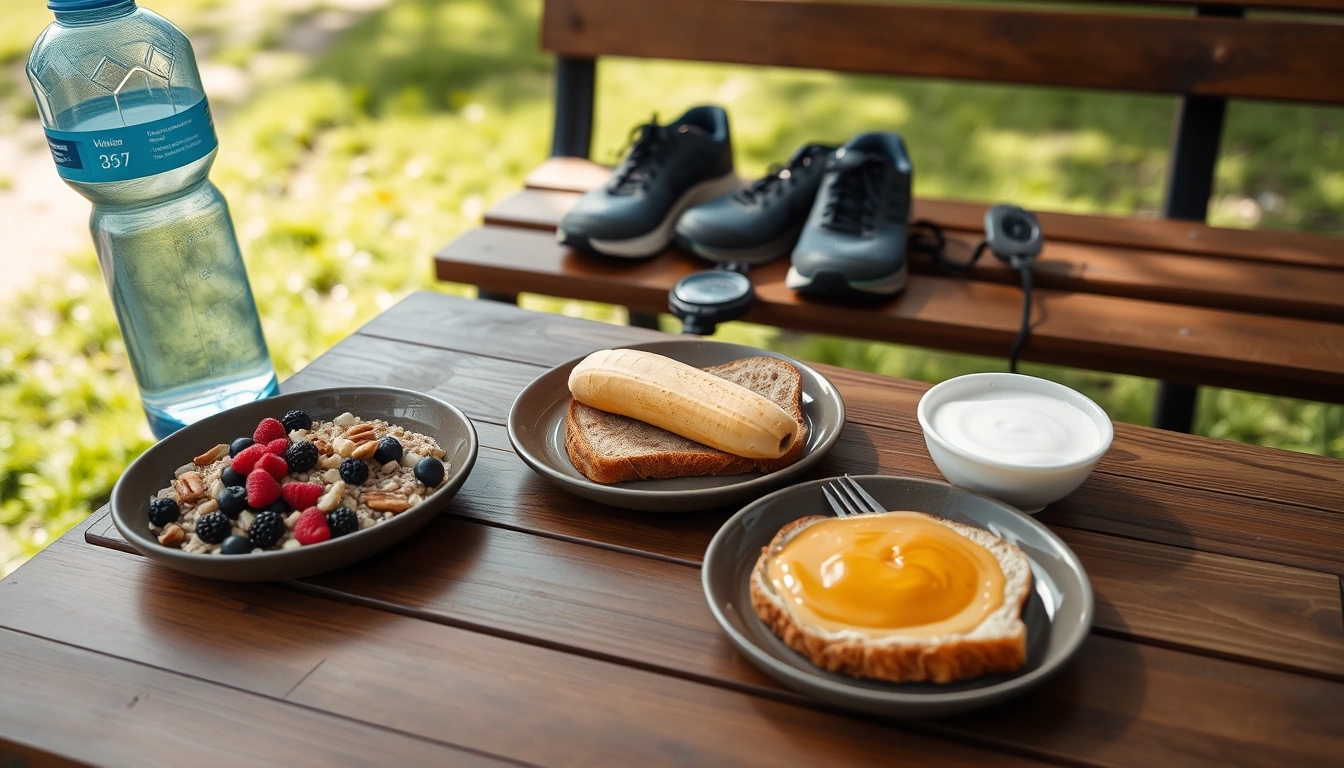
Sample meal plans for different runner types
Alright, let’s get real about fueling those legs before you hit the pavement. Whether you’re just lacing up your shoes for the first time, a seasoned marathoner, or someone whose tummy throws a tantrum at the slightest provocation, your pre-run meal needs to be just right. No one-size-fits-all here — it’s all about tailoring your fuel to your unique needs. So, buckle up, because we’re diving into some practical, no-nonsense meal plans that actually work.
Beginners: If you’re new to running, your body is still figuring out how to handle the whole “eat-then-run” thing. Keep it simple and light. You want carbs for energy, but nothing too heavy that’ll weigh you down or cause a side stitch. Think a slice of whole-grain toast with a smear of peanut butter or a small banana. Easy to digest, quick to give you that pep in your step.
| Food | Why it works |
|---|---|
| Half a banana | Quick carbs, potassium to prevent cramps |
| Whole-grain toast with peanut butter | Carbs + a bit of protein/fat for sustained energy |
| Small bowl of oatmeal | Slow-releasing carbs, gentle on the stomach |
Keep your meal about 30 to 60 minutes before your run. Too soon, and you might feel like you swallowed a rock; too late, and hunger pangs might sneak up on you mid-run.
Seasoned runners: If you’ve been pounding the pavement for a while, you probably know your body’s quirks and what it likes (or hates). At this stage, you can experiment with adding a bit more protein or healthy fats to your pre-run meal to support muscle endurance and recovery. But hey, don’t go overboard! Fat digestion is slow, and you don’t want to feel like you’re running with a brick in your stomach.
- Try a small Greek yogurt with honey and berries – carbs, protein, and antioxidants all in one bowl.
- Or scramble an egg with a slice of whole-grain bread if you’ve got a bit more time.
- Hydration is key – a glass of water or a diluted sports drink can make a world of difference.
Timing here is a bit more flexible — seasoned runners often find eating 60 to 90 minutes before the run works best, giving the body time to process the meal without feeling weighed down.
Runners with sensitive stomachs: This one’s tricky. If your gut throws a fit every time you eat before running, you’re not alone. The key is to keep it ultra-light, low-fiber, and avoid anything too acidic or spicy. Some swear by just a small piece of white bread with a bit of honey or a few sips of diluted fruit juice. Others might even opt for a quick energy gel or sports drink if solid food is a no-go. Experimentation is your friend here, but patience is a must.
| Food/Drink | Reason |
|---|---|
| White bread with honey | Low fiber, easy carbs |
| Diluted fruit juice (apple or grape) | Quick energy, gentle on stomach |
| Energy gel or sports drink | Convenient, minimal digestion needed |
And hey, if you find yourself struggling no matter what, don’t stress too much. Sometimes, running on an empty stomach (fasted running) works better for sensitive tummies, but that’s a whole different can of worms.
Quick recap:
- Beginners: Keep it simple, light carbs, eat 30-60 mins before.
- Seasoned runners: Add moderate protein/fat, eat 60-90 mins before.
- Sensitive stomachs: Ultra-light, low fiber, try liquids or gels.
Remember, the best meal plan is the one that fits your body and your schedule. So don’t be afraid to try, fail, tweak, and try again. Your perfect pre-run fuel is out there — just waiting for you to find it.
What if you can’t eat before running?
Let’s face it—some mornings, the thought of eating before a run feels about as appealing as a root canal. You’re not alone in this. Many runners wake up with zero appetite, stomach doing somersaults at the idea of food, yet still want to crush their miles. So, what’s the game plan when your body just won’t cooperate with pre-run fuel? Here’s the lowdown.
First off, don’t panic or force-feed yourself into misery. Running on an empty stomach, also known as “fasted running,” isn’t the end of the world. In fact, some swear by it for fat burning and mental toughness. But, fair warning: it’s not for everyone, and it can feel like dragging a sack of bricks if you’re not used to it.
- Start small: If you can’t handle a full meal, try a tiny snack—think a few bites of a banana, a spoonful of peanut butter, or a couple of crackers. Sometimes just a hint of fuel is enough to kickstart your engine.
- Hydrate smartly: Water is your best friend here. A glass or two before stepping out helps wake up your system. If you’re feeling fancy, a splash of electrolyte drink can prevent cramping later on.
- Timing is everything: If you’re not hungry right away, maybe wait 10-15 minutes after waking before nibbling. Sometimes your body just needs to shake off the morning fog.
| Strategy | Pros | Cons |
|---|---|---|
| Fasted running | May improve fat metabolism; simple routine | Can cause dizziness, low energy; not ideal for long or intense runs |
| Minimal snack | Provides quick energy; easier on sensitive stomachs | May not be sufficient for high-intensity efforts |
| Hydration only | Prevents dehydration; no stomach discomfort | Limited fuel for muscles; risk of early fatigue |
Now, if you’re the type who can’t stomach anything but still wants to perform, consider shifting your focus to post-run nutrition. Sometimes it’s about what you do after pounding the pavement that counts most. Also, try experimenting with different foods on non-run days to find what your gut tolerates best. You might discover that a little something like a smoothie or a handful of dates goes down easier than a bulky breakfast.
One quirky tip? Chew gum or sip on flavored water while you get ready. It tricks your brain into thinking you’re eating without actually filling your stomach. Weird, but hey, whatever works.
Bottom line: Listen to your body. If running on an empty stomach feels like a death march, try light snacks or adjust your run time to a bit later when you can eat comfortably. If you’re crushing it fasted, cool—own it. No one-size-fits-all here.
Remember, morning appetite struggles are common, but they don’t have to sabotage your training. With a little trial and error, you’ll find your sweet spot and keep those early runs feeling strong.
Listening to your body’s signals
Running isn’t just about lacing up and hitting the pavement; it’s a full-on conversation with your body — if you’re willing to listen. When it comes to pre-run eating habits, this chat becomes even more crucial. What works for one runner might send another straight to the bathroom or leave them feeling like a slug halfway through their route. So, how do you figure out the perfect pre-run fuel without turning your mornings into a guessing game? Well, buckle up, because it’s all about tuning into those subtle (and sometimes not-so-subtle) signals your body throws at you.
First off, don’t ignore the obvious stuff like stomach grumbles or that heavy “ugh” feeling after eating. If you find yourself feeling bloated or sluggish during your run, that’s a big neon sign screaming, “Hey, maybe ease up on those fats or that giant bagel!” On the flip side, if you’re hitting the wall halfway through your run, it might mean you didn’t eat enough carbs beforehand or waited too long to fuel up. Timing and portion size can be a tricky dance.
| Body Signal | Possible Cause | Adjustment to Try |
|---|---|---|
| Bloating or cramps | Too much fat or fiber | Choose low-fat, low-fiber snacks |
| Mid-run fatigue | Insufficient carbs or timing | Eat carbs 30-60 mins before running |
| Nausea or upset stomach | Eating too soon or heavy foods | Eat lighter snacks and allow more digestion time |
| Hunger pangs | Not enough food or too early meal | Add a small snack closer to run time |
Now, here’s the kicker: your body’s preferences can change day to day. Maybe yesterday a banana was your golden ticket, but today it feels like chewing on rubber. Don’t beat yourself up over it. Experimentation is key, but patience is king. Try keeping a simple log of what you eat before runs and how you feel during and after. Over time, patterns will emerge — and that’s your roadmap to better pre-run nutrition.
- Tip 1: Start with small portions and gradually adjust.
- Tip 2: Pay attention to hydration — sometimes what feels like hunger is just dehydration.
- Tip 3: Don’t be afraid to skip food if your stomach’s really off, but consider a light drink with electrolytes.
One more thing — don’t let myths cloud your judgment. You might hear “never run on an empty stomach” or “always carb-load,” but honestly, it’s about what feels right for you. Some runners swear by a quick coffee and nothing else; others need a mini feast. Your body’s feedback is the most reliable coach you’ve got.
Example Pre-Run Adjustment Log:Day 1: Ate toast with peanut butter 45 mins before run — Felt sluggish at mile 2Day 2: Banana and water 30 mins before — Felt energized, no crampsDay 3: Skipped food, just coffee — Felt weak, cut run shortDay 4: Small yogurt and honey 1 hour before — Felt good, solid run
In the end, it boils down to being your own nutrition detective. Watch, listen, tweak, repeat. Your body isn’t a machine; it’s a quirky, sometimes confusing partner in crime. But once you crack the code of your pre-run eating habits, those early miles will feel a whole lot smoother — and maybe even fun.
Remember: Your body’s signals are your best guide. Respect them, and your runs will thank you.
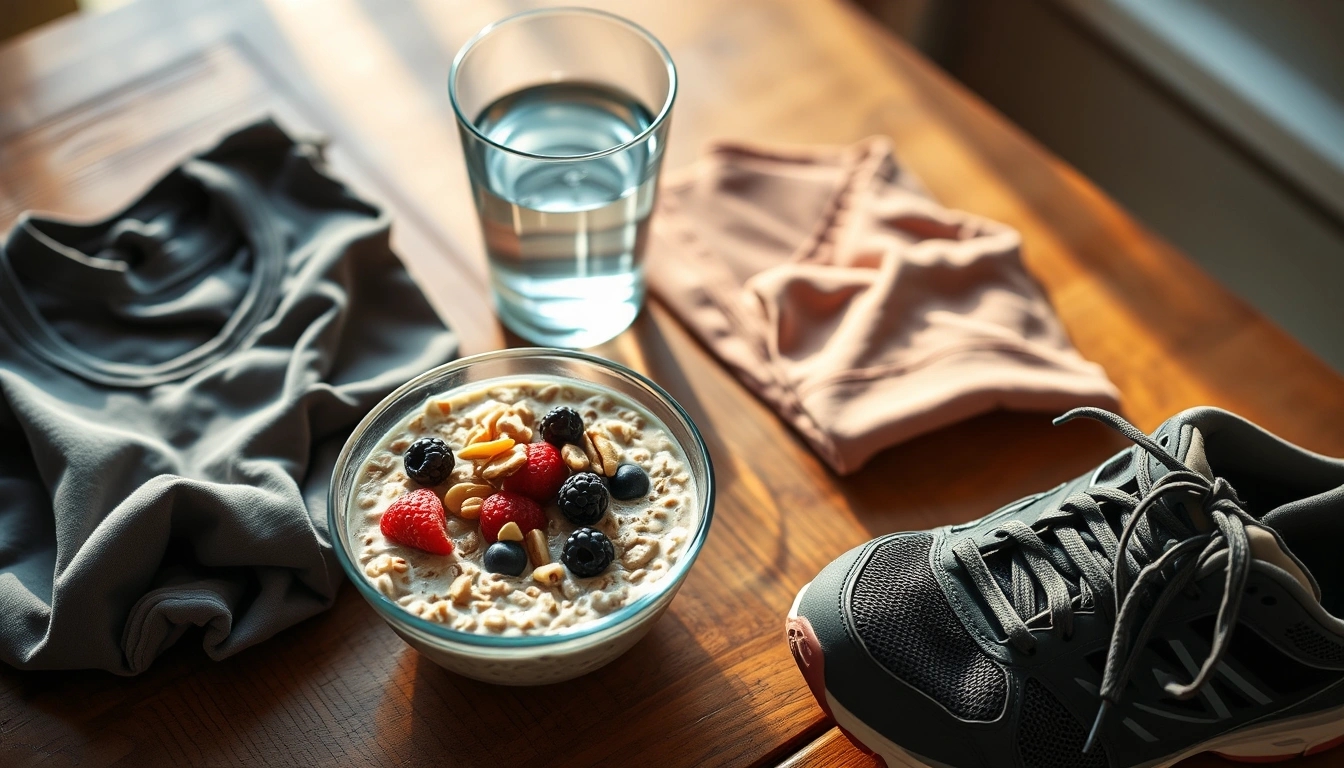
Common myths about pre-run eating debunked
Alright, let’s cut through the noise and chatter about what and when to eat before hitting the pavement. There’s a ton of advice out there, some solid, some downright bizarre. You’ve probably heard it all: “Never eat carbs before running!” or “Run on an empty stomach to burn fat!” Yeah, right. Let’s unpack these popular beliefs and see what’s really worth your time and what’s just fluff.
Myth 1: You must run on an empty stomach to burn fat
This one’s a classic, and honestly, it’s a half-truth wrapped in a full misconception. Sure, running fasted might encourage your body to tap into fat stores, but it’s not a magic fat-burning bullet. Plus, if you’re low on energy, your pace and stamina will take a nosedive, making the run feel like a slog. Instead, a light snack with some carbs can fuel your muscles better and keep you going longer.
Myth 2: Carbs before a run will make you sluggish
Nope, carbs are your best friends here. They’re the quickest way to load up glycogen—the energy your muscles crave. Avoiding carbs before a run is like trying to drive a car on empty. But hey, timing matters! Eating a big carb-heavy meal right before running? Bad idea. You want a small, easily digestible carb snack about 30-60 minutes before.
| Myth | Reality |
|---|---|
| Run on empty stomach to burn fat | May burn fat but reduces performance and stamina |
| Carbs make you sluggish | Carbs provide quick energy and improve endurance |
| Protein before a run is unnecessary | Small protein helps muscle support and recovery |
Myth 3: Protein before running is pointless
Some folks think protein is only for post-workout muscle repair. Well, a little protein before running can actually help stabilize blood sugar and support muscles during the effort. Don’t go overboard though—too much protein can slow digestion and cause discomfort.
Myth 4: Fats are bad before a run
Fats get a bad rap pre-run, but they’re not the enemy. The catch? Fats digest slowly, so a fatty meal right before a jog can lead to stomach issues. However, a small amount of healthy fats earlier in the morning can provide sustained energy, especially for longer runs.
- Tip: Avoid greasy or heavy foods within 2 hours of running.
- Tip: Opt for nuts or avocado earlier in your morning routine.
Myth 5: Hydration is overrated before a run
Nope, hydration is often overlooked but is crucial. Dehydration can sneak up and wreck your performance before you even realize it. A glass or two of water 30 minutes before running can make a huge difference.
So, what’s the takeaway? Don’t buy into extreme advice. Everyone’s body reacts differently, so experiment with timing and food choices. A blend of easy carbs, a touch of protein, light fats, and hydration usually does the trick. And remember, sometimes the “rules” are just guidelines, not gospel. Listen to your body; it’ll tell you what works best.
Practical Pre-Run Snack Ideas:- Banana with a small spoon of peanut butter- A slice of toast with honey- A small bowl of oatmeal- Yogurt with berries- Energy bar (check ingredients for low fat)
Keep testing, keep running, and don’t stress the myths. Your best pre-run meal is the one that fuels you without making you feel like a bloated balloon.
Frequently Asked Questions
- Why is eating before a morning run so important?
Eating before a morning run jumpstarts your energy levels and helps prevent fatigue. Think of your body like a car—you wouldn’t hit the road on an empty tank, right? Fueling up ensures you have the stamina to power through those early miles without feeling drained or sluggish.
- How long before a run should I eat?
Timing is everything! Ideally, you want to eat a balanced meal or snack about 30 to 60 minutes before your run. This window helps your body digest the food and convert it into usable energy, so you avoid that heavy, uncomfortable feeling mid-run.
- What types of food should I focus on before running?
Carbohydrates are your best friend for quick energy—they’re like the turbo boost for your muscles. Pair them with a little protein to support muscle repair, and keep fats light since they digest slower and might cause discomfort during your run.
- Can I run on an empty stomach if I don’t feel hungry?
Absolutely, but it’s a bit like running on reserve fuel. If you choose to run fasted, listen closely to your body—start slow and see how you feel. Some runners thrive this way, but if you notice fatigue or dizziness, try a small snack next time.
- Should I drink water before my morning run?
Yes! Hydration is often overlooked but super critical. Drinking water or an electrolyte drink before you head out keeps your muscles happy and helps prevent cramps or dehydration, especially if you sweat a lot.
- Which foods should I avoid before running?
Steer clear of heavy, greasy meals, high-fiber foods, and anything too sugary right before running. These can cause bloating, cramps, or a sudden energy crash—like hitting a wall when you least expect it.
- What are some quick pre-run snack ideas?
When time is tight, grab a banana, a slice of toast with peanut butter, or a small bowl of oatmeal. These options are easy on the stomach and packed with the right nutrients to keep you energized.
- How do I know if my pre-run meal is working for me?
Pay attention to how you feel during and after your run. If you’re energized, comfortable, and performing well, you’ve found a winner. If not, tweak the timing or ingredients until it feels just right—your body is the best guide.

